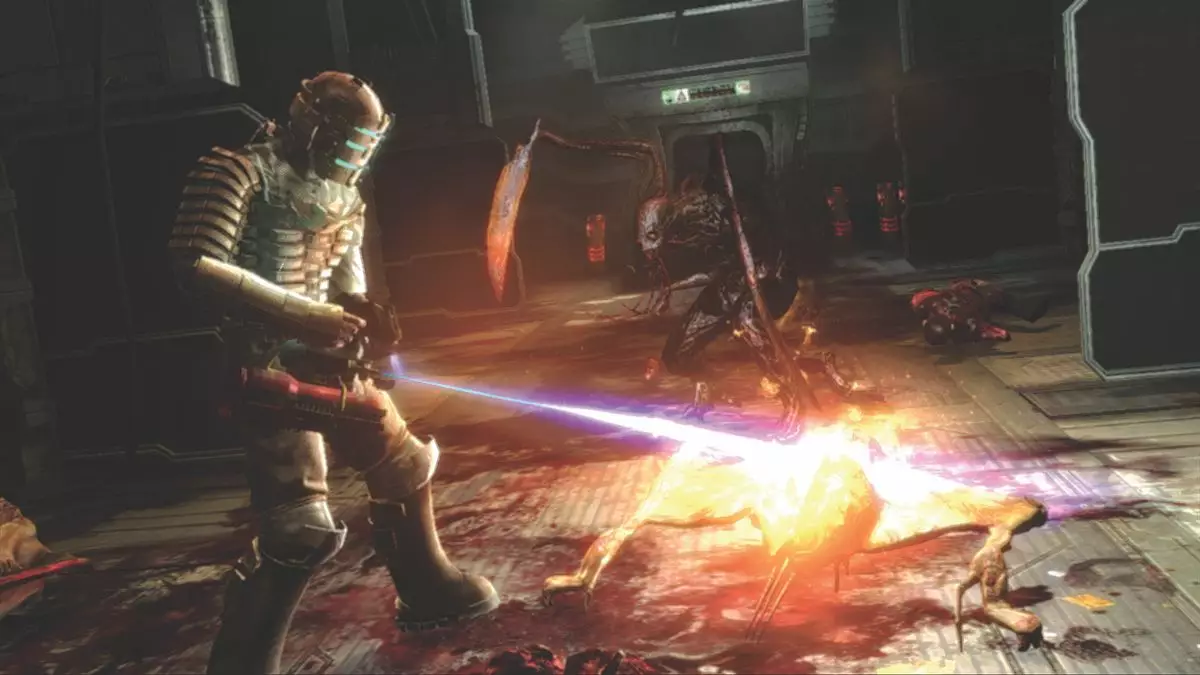The Dead Space series stands as a benchmark in the realm of horror video games, with its unique combination of deeply immersive storytelling, atmospheric dread, and intuitive gameplay mechanics. Despite the gains achieved by the recent remake of the first Dead Space, the original developers faced disappointment when they approached Electronic Arts (EA) with concepts for Dead Space 4. In candid discussions, key figures from the series, including Glen Schofield, Christopher Stone, and Bret Robbins, reflected on their attempts to return to the franchise, shedding light on the industry’s hesitancy towards traditional horror narratives.
In a discussion shared via Dan Allen Gaming, the trio of creators confirmed their initiative to pitch a fourth installment. Their enthusiasm, however, was met with a swift dismissal. Schofield remarked, “We tried actually, the three of us. We tried Dead Space 4. We’re talking this year.” The rejection from EA was not based on a lack of creative ideas; instead, it reflected a broader trend where gaming companies are increasingly reluctant to invest in franchises that may not guarantee immediate financial returns. The developers underscored that despite their close ties to the franchise, the industry’s risk-averse climate proved a significant barrier.
Schofield’s admission that they did not pursue the pitch further speaks volumes about their respect for EA’s position as a business entity aware of industry dynamics. While their vision for a fourth game inspired deep enthusiasm, the practicalities of market demand ultimately shaped EA’s response.
Christopher Stone illuminated the current landscape of the gaming industry, expressing a sense of disillusionment. “The industry’s in a weird place right now, people are really hesitant to take chances on things,” he noted. This sentiment echoes a broader concern amongst creators: the fear that innovation may be stifled by a business model focused on safety rather than exploration. The gaming community thrives on fresh experiences, yet the reluctance of major companies to back ambitious ideas puts creators in a precarious position.
The creators hinted that they still harbor aspirations for Dead Space, indicating that they possess a wealth of ideas which remain untapped. The notion that they would return to create further installments brings hope for fans who are eager to see the continuation of a beloved narrative. Unfortunately, the outlook remains uncertain, as market trends dictate that EA may not be inclined to greenlight such projects soon.
While Schofield, Stone, and Robbins share their hopes for Dead Space 4, they also acknowledge the challenges presented by their recent project, The Callisto Protocol. This game, while visually captivating and thematically similar—featuring gruesome encounters and a sci-fi atmosphere—failed to resonate with audiences in the same manner as its predecessor. The reception highlighted that franchises come with weighty expectations; when developers stray too far from the essence of the original, the results may disappoint.
The Callisto Protocol serves as a reminder that while the original concepts of horror may evolve, the undercurrents of suspense and dread from the Dead Space legacy remain unmatched. It has become evident that the heartbeat of horror gaming beats strongest in the veins of the Dead Space series.
For many gamers, the ambitious world of Dead Space is one they cherish, remembered fondly for its unique atmospheric tension and intricate storytelling. As Claudio, a lifelong fan, recalls his early hesitations about picking up the game due to misleading cover art, it suggests that potential new audiences may still be wandering in the shadows, oblivious to the delights that await in this universe.
As discussions of remakes for Dead Space 2 and 3 swirl around the community, there remains palpable excitement for the future of the franchise. Fans desperately hope that EA will consider the wishes of the original development team. For Schofield, Stone, and Robbins, returning to the universe they helped forge would not just be a career milestone—it would be a homecoming. The sentiment expressed by these creators is clear: a strong desire persists to weave new narratives within a recognized and beloved setting, signifying that the pulse of Dead Space might still be heard, echoing through the corridors of space waiting for rebirth.


Leave a Reply